Your Postpartum Meal Plan: Healthy and Simple Postpartum Diets
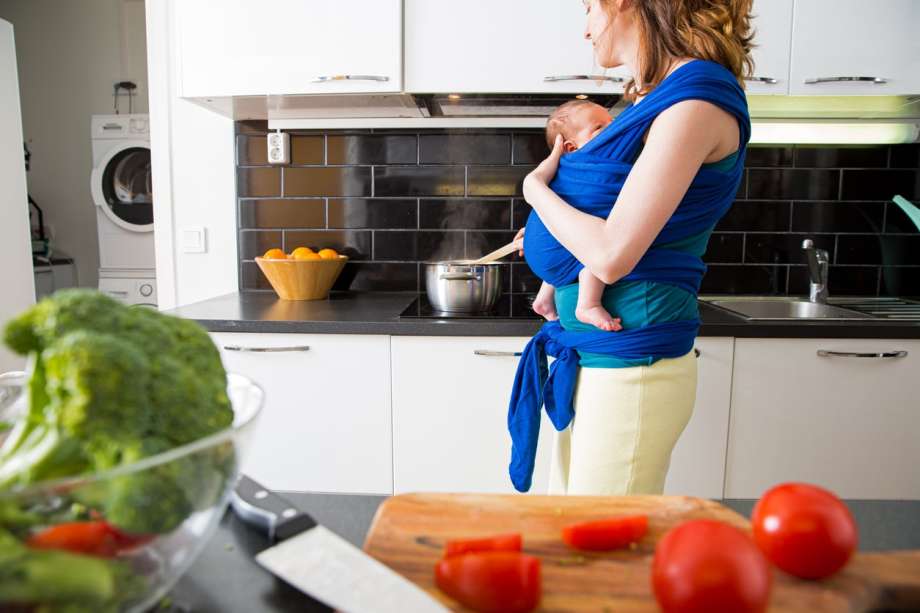
In the weeks and months after bringing new life into the world, your mind should be on two things: your new baby and your own health and wellness. (We're not just talking to moms. That goes for dads, too.)
Not only is giving birth tough on your body, but breastfeeding, waking up at all hours of the night, and being present 24/7 is also physically and emotionally draining.
That said, cooking is probably low on your list of priorities. Friends and family members often put together meal trains to bring food to exhausted new parents right after birth.
But once the casseroles and quiches run out, you're going to have to turn the stove back on.
Related: The Ultimate Guide to Postpartum Care (Underwear to Hair Loss)
The Importance of Postpartum Nutrition for New Moms
While it’s true that your little one is the highest priority, ensuring you stay healthy is one of the best things you can do for your newborn. From milk production to recovery, proper nutrition is the key to everything.
A healthy postpartum diet doesn’t have to be complicated or time-consuming. We know you want to spend as much time with your new baby as possible.
Our parenting experts put together some suggestions to help you plan nutritious meals that make life easier and help you thrive as a new parent.
-
Promotes Postpartum Recovery
According to the Academy of Nutrition and Dietetics, “Healthful food choices may help with recovery by providing the calories, vitamins, minerals, and protein necessary to promote healing.”
To encourage wound healing, they recommend a balanced meal plan comprised of protein-rich foods, fruits, vegetables, dairy, and grains. Fruits and vegetables rich in vitamin C are also helpful, as well as fortified foods that contain zinc.
-
Balances Postpartum Hormones
Whether or not you’ve just had a baby, food is well-known to affect the production and secretion of hormones. However, hormones fluctuate more than usual during pregnancy and postpartum, especially estrogen and progesterone.
A nourishing diet is recommended for new moms to help balance hormones. For example, consuming an abundance of carbohydrates can secrete insulin, which can contribute to unhealthy weight gain. An imbalance of hormones can also trigger cravings for unhealthy food, creating a harmful cycle.
-
Boosts Breast Milk Production
Another example of why it’s so important to consume nutrient-dense foods is its impact on milk supply. In addition to consuming an additional 330 to 400 calories a day while breastfeeding, the Mayo Clinic also recommends focusing on whole foods and healthy eating choices to fuel lactation.
They also note that “Eating a variety of foods while breastfeeding will change the flavor of your breast milk. This will expose your baby to different tastes, which might help him or her more easily accept solid foods down the road.” Hydration is also essential for milk production.
Tips for Sticking to a Healthy Postpartum Diet
Make a Double Batch
When you finally have time to make a pot of soup or nutritious salad, make a double and save the leftovers for another meal later that week. You could also freeze extras to pull out at a later time.

Keep it Simple
Meals don’t have to be elaborate to be balanced. Use leftover chicken to create a quick stir-fry or cook a quick breakfast scramble for dinner.
Embrace Prepackaged and Frozen Foods
No, we’re not talking about junk food. Consider buying pre-washed leafy greens, precut peppers and onion, frozen burgers, or canned beans. Always, meal prep for the entire week if you can!
Best Foods For Postpartum Recovery And Breastfeeding
In addition to milk production, a healthy diet is also vital for proper healing after the physical and mental stresses of childbirth. Retired board-certified obstetrician/gynecologist Kimberly Langdon M.D. recommends the following foods to eat during the postpartum period.
Whole Grains
Whole grains contain more iron, fiber, and B vitamins than other sources. Food choices include whole-grain bread, brown rice, and oats. They can also help stabilize blood sugar and hormone balance.
Vegetables
Strive to eat as many veggies as possible during the postpartum period, ensuring you have a variety of colors. Include peppers, leafy greens, and broccoli, as well as starchy vegetables like sweet potatoes and pumpkin.
Fruit
Variety is the key when adding fruit to your postpartum meal plan. Keep in mind that whole fruits will provide more fiber than juices.
Protein
Protein is essential for healing and milk production, especially lean proteins. Recommended types of meat include fish, free-range beef, lamb and poultry, or game meats such as venison or buffalo. Consider vegetarian options for protein, such as beans (kidney beans and chickpeas), legumes, or lentils.
Healthy Fats
While fats are important in any balanced diet, you should aim for healthy fats, such as mono- and polyunsaturated fats. A few foods to include in your postpartum recipes include avocado, nuts, seeds, and fish.
Dairy
Consider eating low-fat dairy products for extra vitamins and calcium.
The Most Important Postpartum Vitamins/Minerals
Scientific American recommends the five most important nutrients for postpartum and breastfeeding mothers. These include iron, vitamin B12, DHA (an omega-3 fatty acid), choline, and vitamin D.
While most people should be able to get all these nutrients from whole foods, it’s common to continue to take prenatal vitamins or supplements recommended by a dietitian or physician during the postpartum period.
How To Create A Balanced Postpartum Meal Plan
For some, it may be easiest to follow a set meal plan to reduce stress and ensure you’re receiving the proper nutrients. However, you can always make sure you create a balanced meal by following a few easy tricks. Here’s what the New York-Presbyterian Hospital recommends.
- Aim for half of your plate to be full of fruits or vegetables.
- Grains should cover one-quarter of your plate, including cereals with iron and folic acid, barley, and rice. Try to get as many whole grains as possible.
- Only one-quarter of your plate should be protein. Think of meats as side dishes and veggies and grains as your main course. If you eat according to these guidelines, your protein intake will be balanced and adequate, and you won't need to make any special adjustments.
- Drink fat-free or low-fat milk and water.
Easy Postpartum Meal Plan Recipes
Don't feel you need to adhere to recipes exactly—just use them to get a feel for which herbs and spices go best with which whole foods and for basic cooking guidelines.
DIY Salad
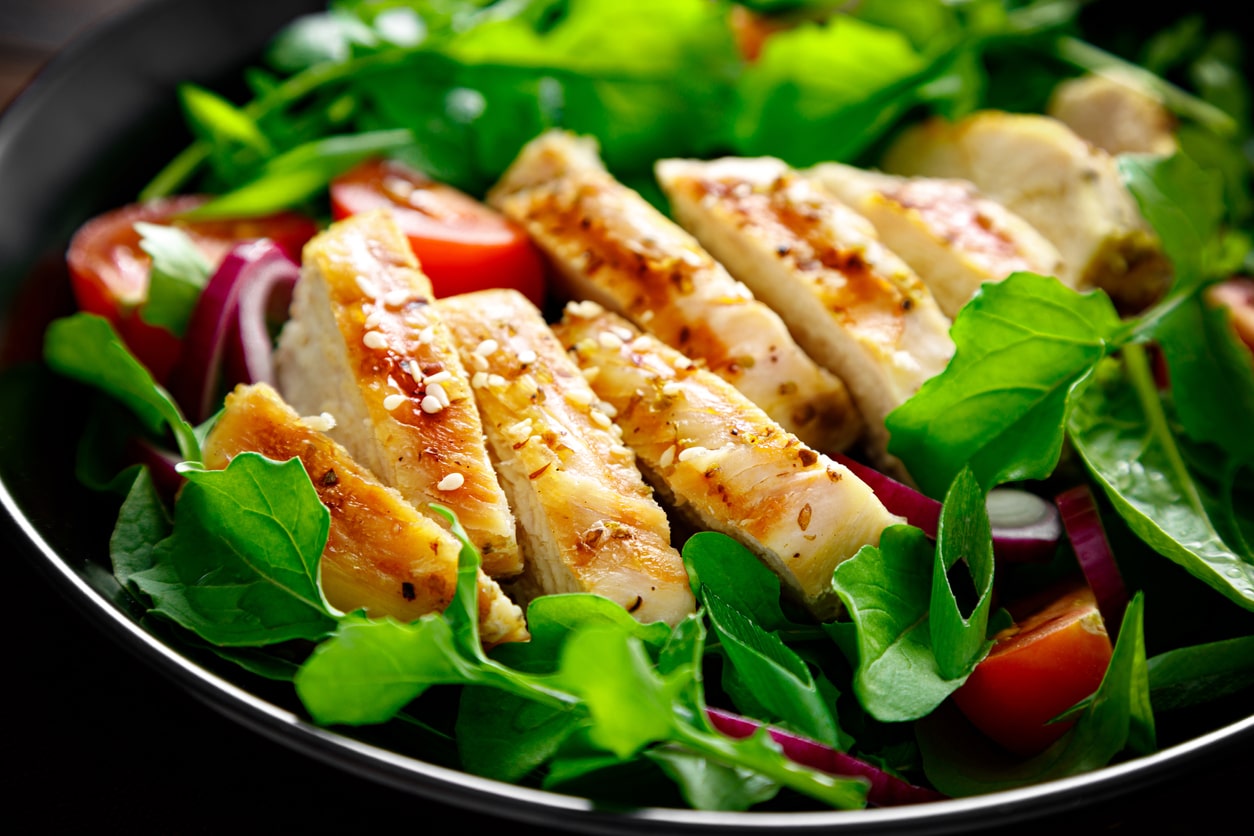
Salads make excellent and easy meals or components of meals. Simply mix and match anything you already have in your refrigerator.
- Start with torn pieces of lettuce or spring greens.
- Add grated beets and/or carrots, bean sprouts, chilled steamed asparagus, or broccoli.
- Add a protein source like grilled fish or chicken.
- For a tasty addition, toss in some slices of avocado, toasted pumpkin seeds, or sunflower seeds which all are great sources of healthy fats.
Healthy Tacos
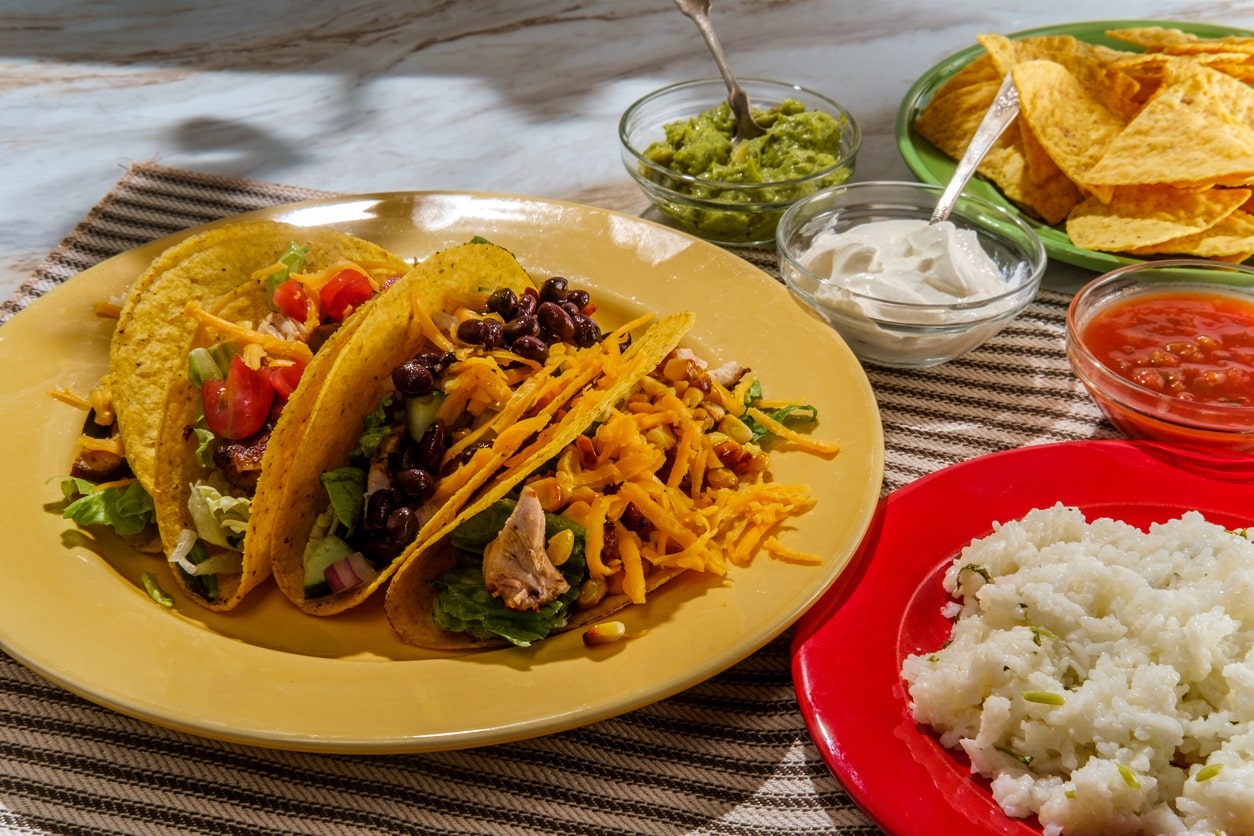
- Start with corn or flour tortillas.
- Add black beans, chicken, or cod.
- Top with avocado slices and thinly sliced raw cabbage.
- Top with salsa and grated cheese.
Smoothies
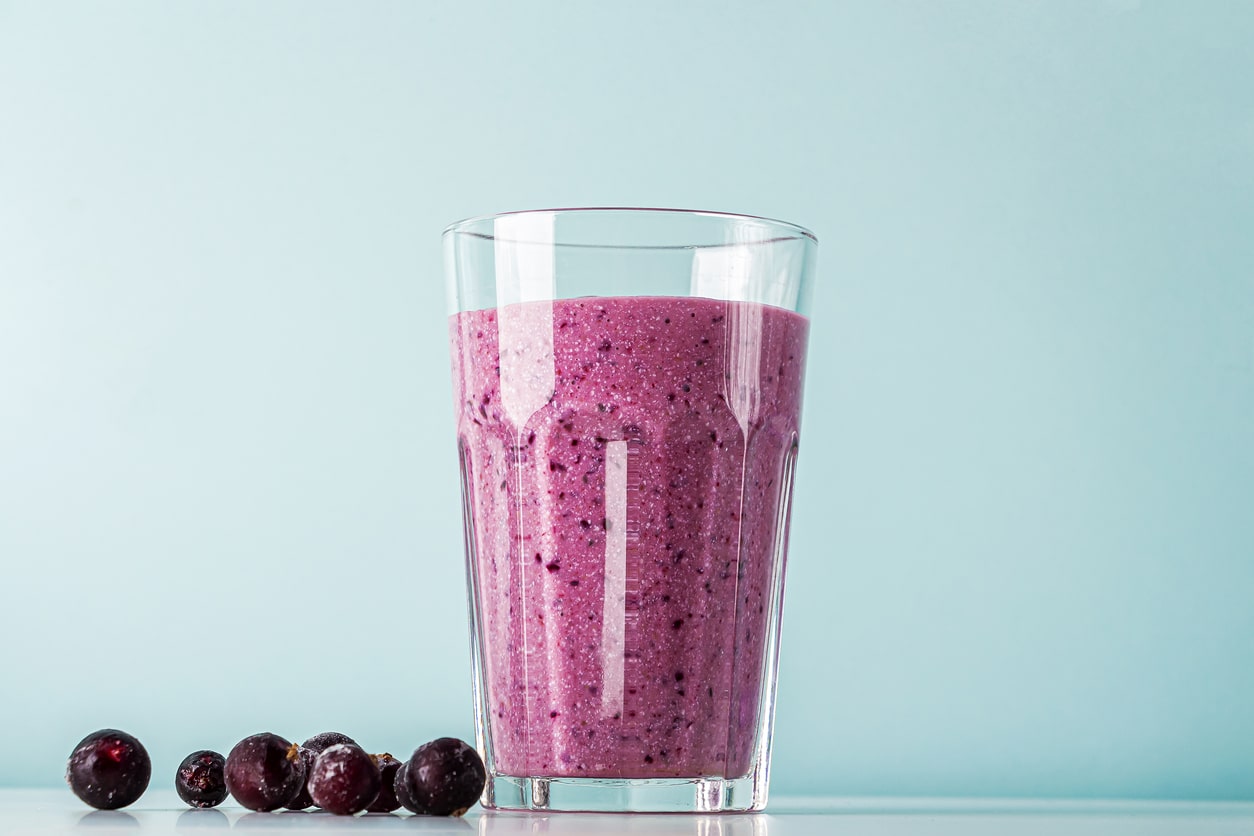
Smoothies make a great hot-weather breakfast or snack. Here’s one of our favorite postpartum smoothie recipes.
- Grind 1 tablespoon of raw flaxseeds in a blender or coffee grinder.
- Add the flaxseed meal to 2 cups of apple, pear, or papaya juice, or to two cups of rice milk.
- Then add one banana and 1/4 to 1/2 cup of frozen blueberries or strawberries.
- Blend until smooth.
- Optional: You can add spirulina powder for extra B vitamins and antioxidant vitamins. You can also add some protein powder for extra amino acids.
Butternut Squash and Cannellini Bean Soup
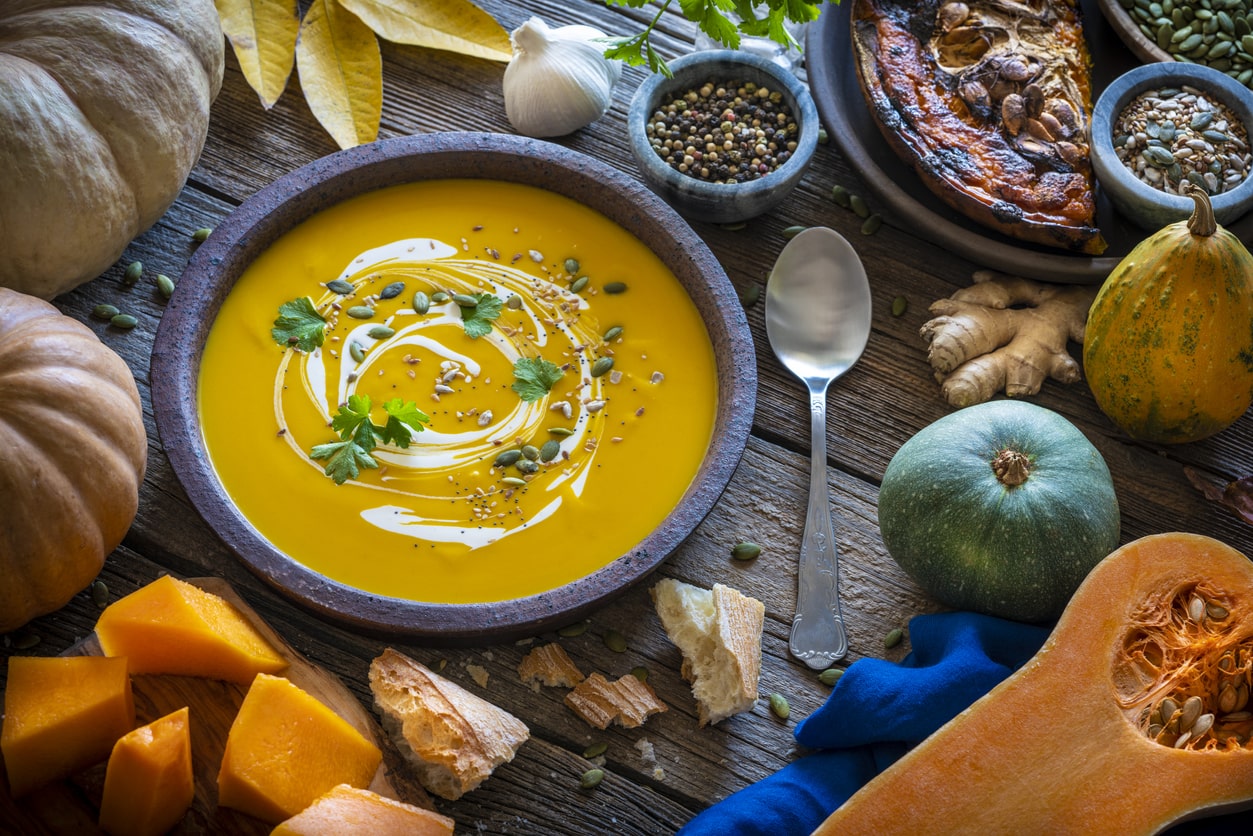
- In a stock pot, sauté one onion and 2 garlic cloves minced in olive oil.
- Add 1 butternut squash peeled and diced, 1 can of cannellini beans and 32 ounces of vegetable broth
- Simmer for 20 minutes.
- Pour everything into a blender and mix until smooth. Serve hot or cold.
3-Day Postpartum Diet Plan Example
Breakfast
Day 1
- ½ to 1 cup of oatmeal cooked with low-fat milk.
- 1 sliced banana.
- 1 hard-boiled egg.
Day 2
- 4 ounces of Greek yogurt with 1 tsp of chia seeds.
- 1/2 cup of your favorite fruit.
- 1 tsp of honey.
Day 3
- Scramble 1 egg and 2 egg whites.
- Add 1 cup of vegetables, such as spinach, peppers, kale and 1 ounce of cheese.
- 1 slice of whole-grain toast.
Lunch
Day 1
- 4 ounces of grilled salmon or chicken.
- 1 cup of quinoa.
- 1 cup of roasted broccoli cooked in olive oil.
Day 2
- 1 can of tuna mixed with celery and hard-boiled egg on a slice of whole-grain bread.
- Add tomatoes or romaine lettuce on top.
Day 3
- 2 cups of leafy greens as the base of a salad.
- 3 ounces of protein, such as meat, nuts, or dried fruit.
- 2 cups of veggies, such as tomatoes, carrots, and cucumber.
- 2 tbsp of dressing.
Dinner
Day 1
- ½ cup cooked whole wheat pasta.
- 3 ounces of beef or turkey meatballs.
- ½ cup of tomato sauce with sauteed zucchini.
- 1 tbsp of parmesan cheese.
Day 2
- Stir-fry with 2 ounces of chicken or beef.
- Add vegetables of choice, such as broccoli, peppers, cabbage, and snap peas.
- ½ cup of cooked brown rice.
Day 3
- Butternut squash and cannellini bean soup.
- 1 piece of bread or 5 crackers.
Snack
When you need a snack to keep your energy up, choose a healthy, nutrient-rich one like:
- Organic applesauce.
- A smoothie (see the previous section for a recipe).
- Fresh fruit or vegetables with protein; for example, a sliced apple spread with almond butter, celery sticks spread with cashew butter, or carrot sticks dipped in tahini dressing.
- Nuts.
- A slice of whole-grain bread with nut butter, organic cheese, tuna, or sardines.
Even with growing kids to feed, eating well doesn't have to be complicated! Check out our tips for eating healthy when you're a parent on the go.

